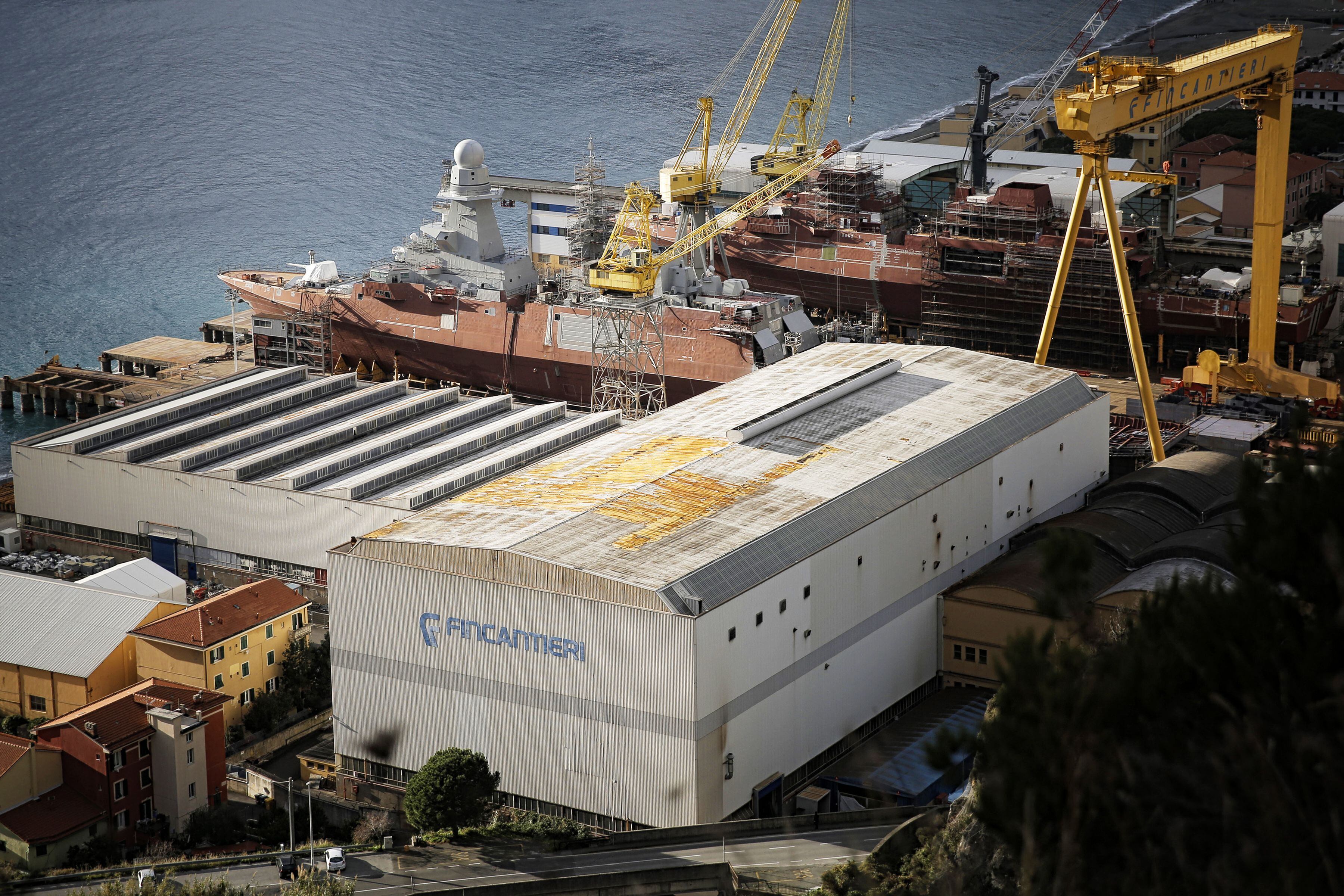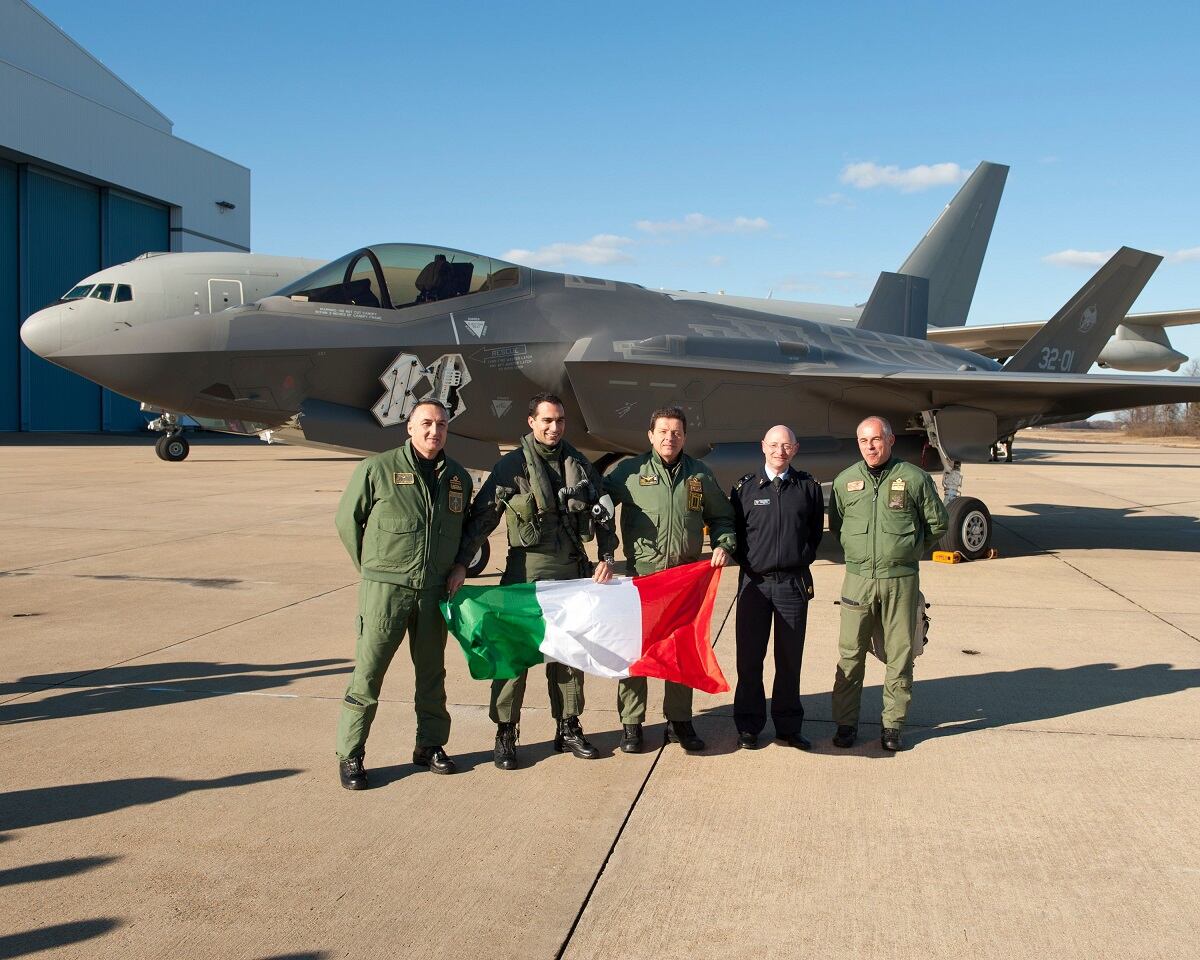ROME — Italy’s two state-controlled defense champions, Leonardo and Fincantieri, have fought an unusual battle over the acquisition of a smaller company as they jockey for position ahead of their expected integration of naval work with French industry.
Shipyard Fincantieri thought it had sewn up the purchase of Italian firm Vitrociset in August, only for Leonardo to snatch it from under its nose on Sept. 7, leaving the Italian government to step in to mediate.
The tussle between two firms that both answer to the Italian state and closely cooperate on naval programs around the world is due to new rivalry as both edge toward teaming on naval programs with France’s Naval Group.
The Italo-French deal is still being thrashed out, but may see a 10 percent share swap between Naval Group and Fincantieri and joint export campaigns to reduce the fractured nature of the European shipbuilding industry.
The deal automatically involves Leonardo since it provides electronics, guns and radars for Fincantieri’s ships. But Leonardo CEO Alessandro Profumo has expressed concerns that regarding ships built or marketed jointly by Fincantieri and the French, his systems may be overlooked in favor of those produced by Thales, which is a shareholder in Naval Group.
Fincantieri and Leonardo have not announced how they will structure the cooperation between them within the context of the French deal.
The story took a twist in July when Fincantieri announced plans to buy Vitrociset, a €187 million (U.S. $217.9 million) turnover Italian technology firm employing 800, which carries out training and support work in the defense, security, transport and space sectors.
Fincantieri said it would take over Vitrociset’s defense work, while its partner in the purchase, Italian firm Mer Mec, would assume control of its civil work.
It was an unusual purchase, given that Vitrociset performs ground-support work for the F-35 fighter jet, but it was set to give Fincantieri control of Vitrociset’s work on automation, command and control, and simulation, all usual capabilities giving it stronger hand in talks with Naval Group, and with Leonardo.
RELATED

It came as CEO Giuseppe Bono enjoyed his 16th year on the job as Fincantieri boss after steering both the naval and cruise ship sides of the business to success, most recently scoring large warship orders in Italy and Qatar, despite seeing its FREMM frigate beaten in Australia by the BAE Systems Type 26 frigate.
Bono has not only proven he knows how to talk to Italy’s often short-lived governments, but he is also an old acquaintance of Naval Group CEO Hervè Guillou, which has helped the two men plot the Italo-French naval team-up.
With Leonardo CEO Alessandro Profumo already concerned about his products being sidelined in the deal, it appears the Vitrociset purchase by Fincantieri was one step too far for him.
On Sept. 7, Leonardo announced that as a minor shareholder of a 1.46 percent stake in Vitrociset, it also had right of first refusal in a purchase, which it had decided to exercise. It would then purchase the other 98.54 percent, taking over Vitrociset, and denying Fincantieri of that pleasure.
“The transaction creates value, enabling Leonardo to strengthen its Services core business, mainly Logistics and Simulation & Training, and Space Operations activities, including Space Surveillance and Tracking,” Leonardo said in a statement. “Moreover, this initiative allows the national consolidation of the Aerospace, Defence and Security value chain, increasing its competitiveness with significant market opportunities.”
Leonardo said it would look into enabling the “possible entrance of other partners,” suggesting a role for Fincantieri in the future.
Despite the possible olive branch, the announcement was a clear shot across the bows of Fincantieri, and Italy’s defense minister, Elisabetta Trenta, reportedly stepped in to discuss the tussle with Profumo and Fincantieri president Giampiero Massolo when she met them at a business conference a few days later.
RELATED

The scrap between two state-controlled firms over Vitrociset came shortly after Italy’s new populist government took office in June, and as ministers were still finding their feet.
The question for Leonardo is whether the acquisition of a company made in order to stop another company buying it makes business sense.
One analyst said he saw the logic. "Leonardo had a legitimate need to prevent other companies from operating in its own sphere of influence,” said Michele Nones, scientific advisor at IAI, a think tank based in Rome.
“Moreover, If Leonardo feels that Fincantieri wants to go it alone or force Leonardo’s hand, it is clear it will react,” he said. “Leonardo has increased its defenses ahead of an possible naval deal with Fincantieri.”
Nones suggested Leonardo had been mulling the purchase of Vitrociset, so was not entirely acting only in reaction to Fincantieri’s announcement.
“Leonardo has looked at the firm in the past, but the price asked was too high. When Fincantieri’s lower offer was accepted, Leonardo was able to come in at that price,” Nones said.
Tom Kington is the Italy correspondent for Defense News.








